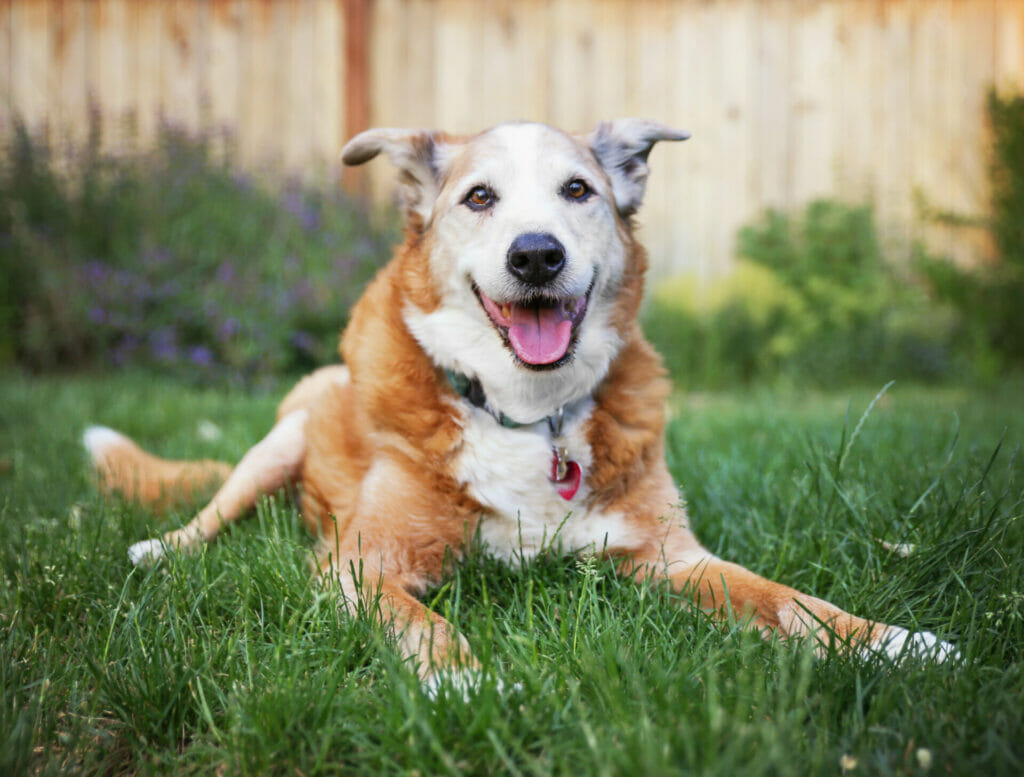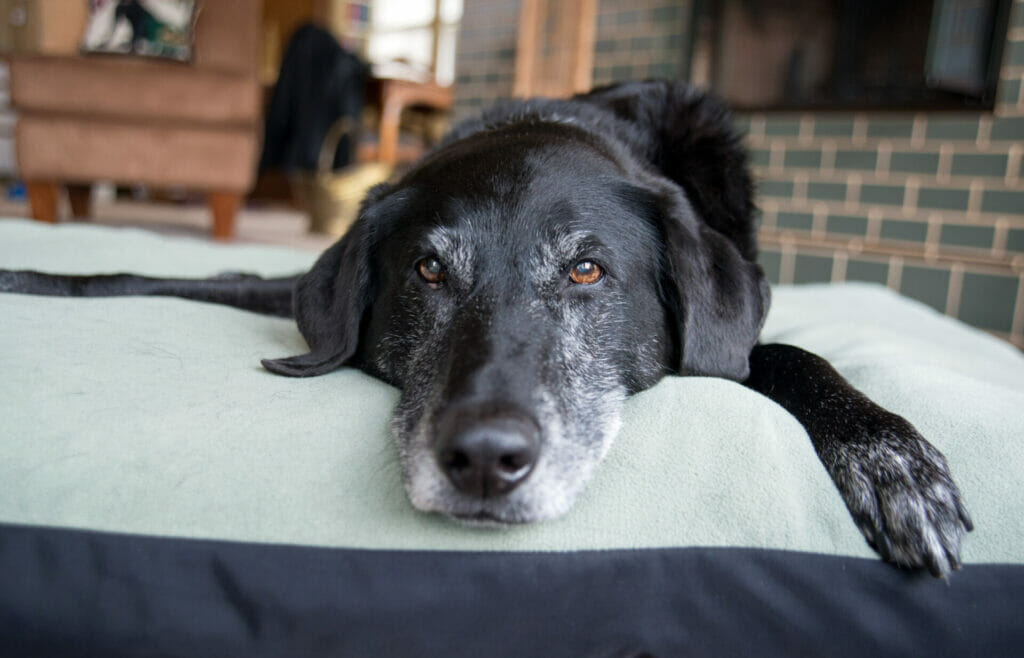One of the hardest things about sharing our lives with dogs is their shorter lifespan. Watching your dog physically slow down and not be able to do all the things they once did can be challenging. However, for many dog owners watching a senior dog suddenly become confused, or not recognize their family can be devastating. Dog owners should know they aren’t alone as they adjust to these new behaviors. Dog dementia is an age-related condition that is becoming increasingly common as dogs live longer.

What is Dog Dementia:
Dog dementia is the common name of a condition known as Canine Cognitive Dysfunction or CCD. The symptoms of dementia in dogs mirror Alzheimer’s in humans. Researchers have found that dogs experiencing Canine Cognitive Dysfunction experience challenges around memory, loss of special awareness, and changes in sleep as well as social interactions with people and other animals. Dementia in dogs continues to be studied, but there are some findings that indicate that there are associations between dementia and decreased activity levels and a history of eye, ear, and neurological disorders. Dog dementia is age-related and tends to be a progressive condition where symptoms tend to become more pronounced or worsen over time.
How Common is Dog Dementia:
As our dogs are living longer lives thanks to advancements in veterinary treatment, care, and food they are experiencing more age-related health conditions. Symptoms of dementia or Canine Cognitive Dysfunction become increasingly common as dog’s age. It is estimated that nearly 40% of dogs over the age of 12 may be showing symptoms of CCD and may be experiencing some amount of dementia. A new study shows that a dog’s risk of experiencing dementia likely increases by 52% each year after their tenth birthday. As dogs are living longer more of us are going to share our home switch dogs who are experiencing some symptoms of dementia.

Symptoms of Dog Dementia:
Any change in behavior with an older dog is something that should be communicated with your dog’s veterinarian right away as it could be a symptom of an undiagnosed medical condition. Common symptoms of dementia to watch for include: a change in interactions or behavior with people or animals in the family, a change in sleeping behavior, confusion or being disoriented, and a change in potty training such as going potty in the house when the dog has been potty trained pacing and restlessness. Dogs who experience dementia may start to forget different cues and behaviors they once knew and might seem confused even in familiar places such as their home and around their family.
Diagnosing Dog Dementia:
If you are noticing symptoms of dementia, your dog’s veterinarian will likely do a complete physical examination of your dog, as well as blood work. The goal of this thorough examination is to identify or rule out any other medical conditions which could be impacting your dog’s health and behavior. Assuming other conditions aren’t discovered which would explain the symptoms your dog is presenting your veterinarian will likely move forward with a diagnosis of Canine Cognitive Dysfunction.
Treatment for Dog Dementia:
Currently, there is no cure for canine dementia, and this condition does tend to worsen with time. There are some treatment options that are available to try and slow the cognitive decline of canine dementia. Your veterinarian may prescribe medication to your dog which can delay the symptoms of dementia. Your vet may also discuss changing your dog’s food or adding supplements that may support mental clarity.
Enrichment for Dog Dementia:
Just like how staying mentally and physically active has been shown to lead to better health outcomes for people, the same may be true for dogs. Although it is not a cure for dementia, enrichment activities including training, food dispensing puzzle toys, and snuffle mats may help keep your dog’s memory sharper and help delay, slow down, or even prevent dog dementia symptoms. If your dog is experiencing symptoms of dementia, you’ll want to be thoughtful about safety. Keep your dog on a leash when not in a fenced area to ensure that your senior dog doesn’t wander out of your home or yard in a disoriented state which could lead them to get lost or injured.

Comfort and quality of life are essential to keep in mind when dealing with dogs struggling with dementia-like symptoms. For dog owners struggling with supporting a dog with dementia, it’s essential to reach out for support from veterinary professionals for a diagnosis, monitoring, and development of a treatment plan. Although it can be scary to watch your dog’s behavior change it’s important to remember they are still the same dog you have always loved, even if they aren’t always sure who you are anymore. Work with your vet to develop a treatment plan that keeps your dog as stable, comfortable, and stress-free as possible as their symptoms of dementia progress.




















